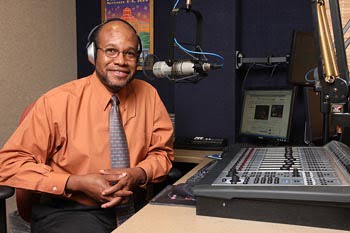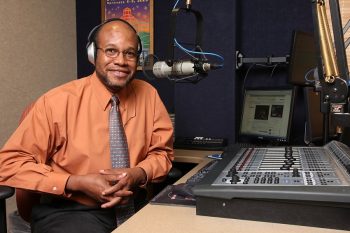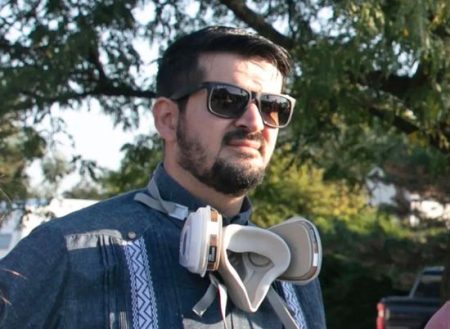Reality Check: Martin Luther King VS Rush Limbaugh

by Errington C. Thompson, MD
Okay, I need to start out by apologizing. For the most part, I feel that I take my time and think about problems; I try not to give knee-jerk answers or comments to a lot of the craziness and straw men – the made-up “issues” – that bombard and surround us.
Now, don’t get me wrong, we do have problems in this country. We have serious problems. But much of what we hear the political pundits arguing about is simply crazy, silly, superficial nonsense.
We rarely hear intelligent discussions on climate change, thoughtful discourse about our military expenditures, or an examination of how we can fix our political system so that we can truly have a representative government. Instead, we get … baloney.
A couple weeks ago, after the horrendous murders in Newtown, CT, while rational people everywhere were considering what to do about gun violence in the United States, conservative radio talk show host Rush Limbaugh said, “If a lot of African Americans back in the ’60s had guns and the legal right to use them for self-defense, you think they would have needed Selma? I don’t know. I’m just asking. If (Rep) John Lewis, who says he was beat upside the head, if John Lewis had had a gun, would he have been beat upside the head on the bridge?”
I will skip the “beat upside the head” phrase with its race-laden slant, and the attempt to cast doubt on provable, evidence-based historic truth (“says he was beat up…”). Instead I’ll take you back to March 1965, Selma, Alabama.
We are in the deep South. Segregation is a way of life. Blacks have very few legal rights and fewer in practice. The Civil Rights Act of 1964 had just passed but it was ignored. There was deep resentment in the South. Southerners believed that their way of life was being challenged by an oppressive federal government – and the possibility that non-whites might get something approaching equality.
It is hard in the year 2012 to understand the difficulty that black citizens encountered while simply trying to vote. The simple task of filling out a voter registration card was made nearly impossible by local and state laws (literacy tests and voter registration fees). Add to that the intimidation from the Ku Klux Klan and the White Citizens Council, and many blacks simply stayed home to avoid ending up dead. As a matter fact, in 1963, while hundreds of blacks were trying to register to vote in Alabama, the police had arrested citizens who were handing out water to the African Americans who waited in line for hours just for an opportunity to fill out a voter registration card.
How to overcome that resistance in the deep South was a burning question in the civil rights movement. Martin Luther King, Jr. had become convinced, more than a decade earlier, that violence was not the way. After reading the thoughtful writings of Mahatma Gandhi and the teachings of Christ, Martin Luther King, Jr. knew that nonviolent resistance was a more powerful tool than violence.
So we’re in Selma on the Edmund Pettus Bridge in March 1965. Martin Luther King and the Southern Christian Leadership Conference have been called in by the Student Nonviolent Coordinating Committee because they were having trouble getting blacks registered to vote. On March 7 (“Bloody Sunday”), 600 tried to cross and were beaten and firehosed; on March 9, 2,500 protesters showed up, crossed the bridge, and turned around; finally, on March 16, at last protected by 2,000 U.S. Army soldiers and 1,900 Alabama National Guard members, activists began the long march to Montgomery for the right to vote. Yet in July that same year, when John Lewis led a group of approximately 50 blacks to Montgomery to register to vote, he and the entire group were arrested. Just three days later a judge ordered that any gathering of three or more people sponsored by a civil rights group was illegal.
It is in this environment that Rush Limbaugh suggests that Lewis, a political activist, civil rights leader, and member of the Student Nonviolent Coordinating Committee, should’ve been carrying a weapon as he and Martin Luther King approached the Edmund Pettus Bridge. Now, let’s remember who beat up John Lewis and other protesters on that day, which has become known as Bloody Sunday: they were Alabama state troopers. If John Lewis had pulled a gun against an Alabama state trooper, the carnage would have been catastrophic.
Instead, the horror of Bloody Sunday – of armed state troopers attacking unarmed, peaceful protesters, affected the country so powerfully that on March 18, less than two weeks later, the Voting Rights Act of 1965 was introduced in the U.S. Senate; it was passed that summer, and took effect August 6, 1965.
What Rush Limbaugh and others like him don’t understand is that the civil rights movement succeeded as much as it did in large part because it had the moral authority, the moral high ground. The reason that America was able to move quickly to pass civil rights legislation, to pass the voting rights act, was because of the moral righteousness of the civil rights movement. If John Lewis and Martin Luther King would have listened to Rush Limbaugh, John Lewis would not be a long time Representative to the House – he would be a long-dead martyr to Bloody Sunday. The Civil Rights Act of 1964 and the Voting Rights Act of 1965 would not have passed for at least several more years, perhaps a full generation, and I probably wouldn’t be a doctor and Barack Obama wouldn’t be President of the United States.
But Rush Limbaugh and others like him don’t understand because they disdain reality; they disdain facts. For anyone in the reality-based universe, their world view verges on insanity. That’s why, every now and then, I think that it is instructive to step back and truly examine the craziness. It is only under examination that we can understand how truly bizarre some of these statements are. And it is only by understanding, believing, and accepting reality that we as a nation can solve these complex problems.
In the real world, global warming results from mankind burning fossil fuels. In the real world, gun violence causes the deaths of thousands of Americans every year. In the real world, the attack on our embassy in Benghazi was the work of Muslim extremists, not a plot by Barack Obama and Hillary Clinton to win an election. In the real world, banks that are “too big to fail” are too big to exist because they risk the financial stability of you and me – in fact, of the entire globe. In the real world, giving tax breaks to the rich makes the rich richer and the poor poorer.
And here on planet earth, in the real world, we honor Congressman John Lewis and Dr. Martin Luther King, Jr. as heroes because they knew that they were risking their lives as they marched against racism not with guns, not with armor, but with nothing more than the power of moral authority. As Morpheus said to Neo in the sci-fi movie, The Matrix, “Welcome to the Real World.”








